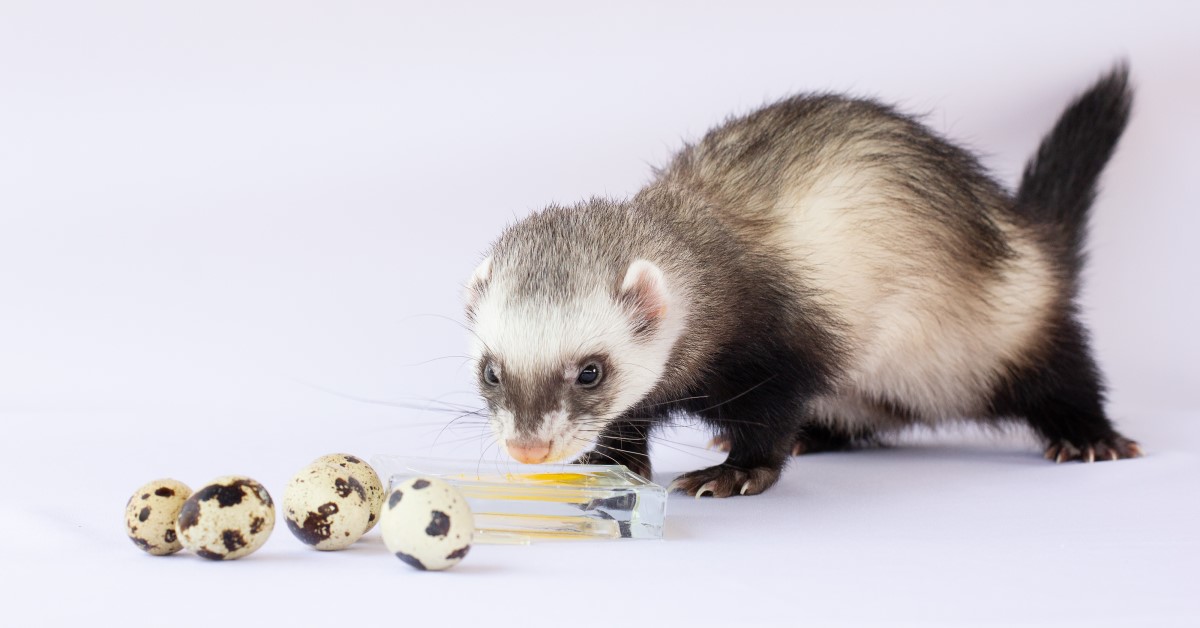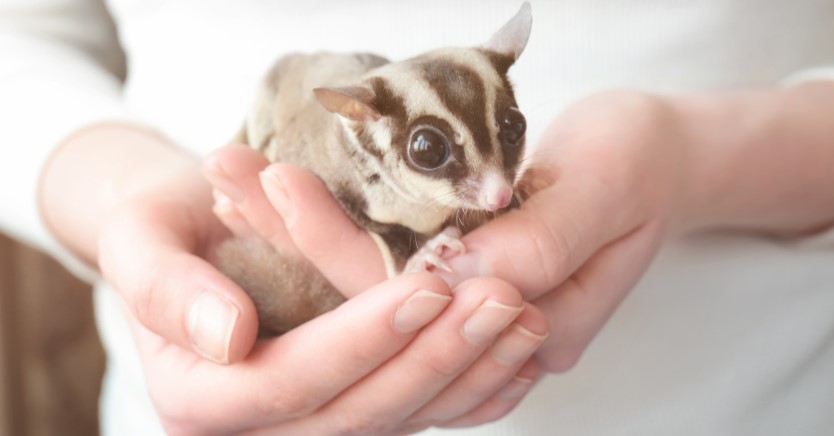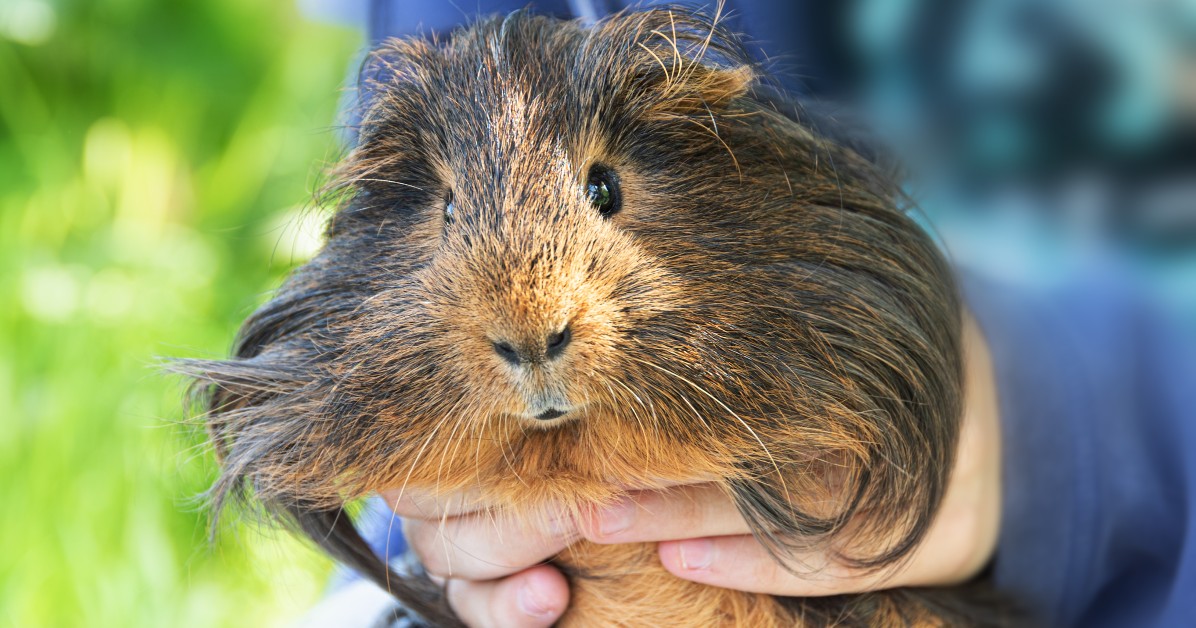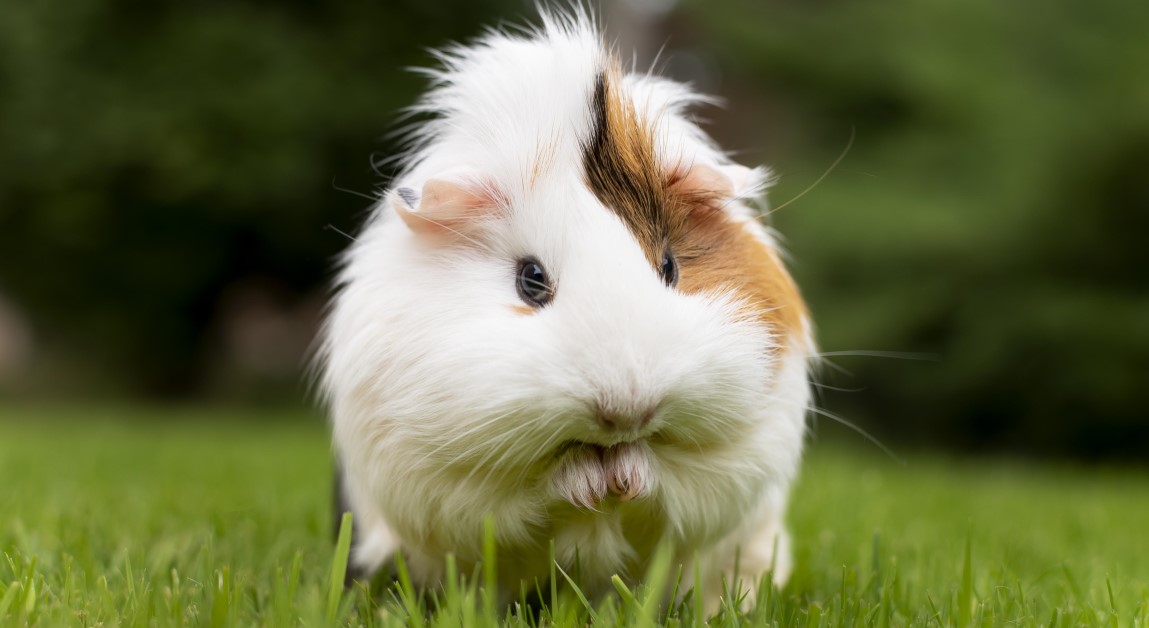Feeding Your Pet Ferret a Healthy Diet
Feeding your ferret a diet low in fiber and high in protein and fat can help keep your pet healthy and content.

Despite their small size, ferrets are insatiable eaters. In fact, these furry creatures eat approximately 5 to 7 percent of their body weight in food every day. However, their diet is fairly restrictive, as they do not eat fruits, vegetables, or other plants. Instead, they are obligate carnivores, meaning they survive on a diet high in meat-based proteins and fats. Before bringing a pet ferret home, familiarize yourself with what ferrets generally eat and what they need to maintain good health.
What Do Ferrets Eat in the Wild?
Before you can really understand ferret nutrition, it’s important to learn what these unique critters eat in the wild. As tiny hunters, ferrets consume a range of small mammals, such as mice, rats, and rabbits. However, they will occasionally dine on fish, reptiles, birds, and even insects when given the opportunity. As this type of diet is not practical for domesticated ferrets, pet owners must take a different approach to nutrition.
What Nutrients Do Ferrets Need?
Like other pets, ferrets need a variety of nutrients to maintain optimal wellbeing. These requirements include:
Fat and Protein
Ferrets do best on a diet high in fat and protein, with a fat-to-protein ratio of 1:2. This essentially equates to a diet containing approximately 15 to 20 percent fat and 30 to 40 percent protein. Remember that protein sources should only come from high-quality meats and never grains.
Phosphorus and Calcium
Both phosphorus and calcium are essential nutrients for growing ferrets. The average pet should be given a phosphorus-to-calcium ratio of 1:1.5.
Fiber
As carnivores, ferrets can’t handle very much fiber in their diet. Ideally, these animals should have no more than 4 percent fiber.
Supplements
Most ferrets can thrive without additional supplements if they are fed a high-quality diet with all of the nutrients they need. However, nutritional supplements may be added on occasion to prevent dry skin, maintain your ferret’s coat, and boost immunity. If needed, a high-calorie supplement can help ferrets gain weight after suffering from an illness.
What Should Ferrets Eat for Good Health?
When developing a diet for your pet ferret, consider incorporating some of the following recommended foods:
Raw Meat
The bulk of your pet’s diet should consist of raw meat. Some of the best options include turkey necks, chicken wings, pigeons, game birds, offal, lamb, minced beef, and whole prey.
Eggs
The occasional egg can be a great treat for your ferret. While eggs are considered safe, only feed your pet two raw egg yolks once a week. Avoid giving your pet whole raw eggs as this can contribute to a vitamin B deficiency.
Raw Animal Bones
Giving your pet raw animal bones can be beneficial in multiple ways. First, these bones deliver a source of calcium. They can also help clean your ferret’s teeth. Finally, chewing on raw animal bones can provide a source of entertainment and relieve your pet’s boredom.
Baby and Kitten Food
Many people don’t know that you can feed ferrets baby and kitten food. However, it’s important to choose varieties that are high in meat protein.
Dried Ferret Food
There are a variety of commercial dried ferret foods on the market. However, not all are made equal. When choosing a food, ensure that it is high in fat and animal protein and low in carbohydrates. Carefully read the label on commercial diets. Avoid products that have sweeteners and fruit. Meat or a meat protein isolate should be the first ingredient.
Water
Ferrets should always have access to fresh, clean, and cool water. Check their water at least twice a day and refill as needed. If your ferret goes outdoors during the winter season, check frequently to ensure that their water source doesn’t freeze.
While the previously mentioned foods should be fed in moderation to your pet, there are other foods that should be avoided completely. Some foods to avoid feeding your ferret include rice, peanut butter, grains, nuts, chocolate, milk, and dairy. Ferrets should also not have cooked bones, fruits, and vegetables. The exception is baby ferrets which are often given lactose-free milk, in addition to fresh meat and water.
How Much Should I Feed My Pet Ferret?
Ferrets have a fast gut transit time and it takes just three to four hours on average from the time they eat to the time their food comes out as waste. This means that you’ll likely find your ferret eating constantly. Ferrets should be free-fed, meaning they should have access to food round-the-clock. Without access to food at all times, they can develop hypoglycemia, otherwise known as low blood sugar.
Keeping Your Ferret Healthy with Good Nutrition
With a well-balanced, meat-based diet, ferrets can maintain good nutrition and acquire the energy they need to run, play, and be active. If you’re unsure of what to feed your pet, speak with your vet. Your vet may recommend a complete commercial diet that has everything your ferret needs to manage its weight and thrive. With the proper knowledge of ferret nutrition, you can keep your pet looking and feeling its very best.
Ready to start saving money on pet wellness care?
Then take a look at Mint Wellness, the pet wellness plan that provides fast reimbursement on routine pet care. Save on vaccinations, wellness exams, preventatives, dental, and more!
Learn More


